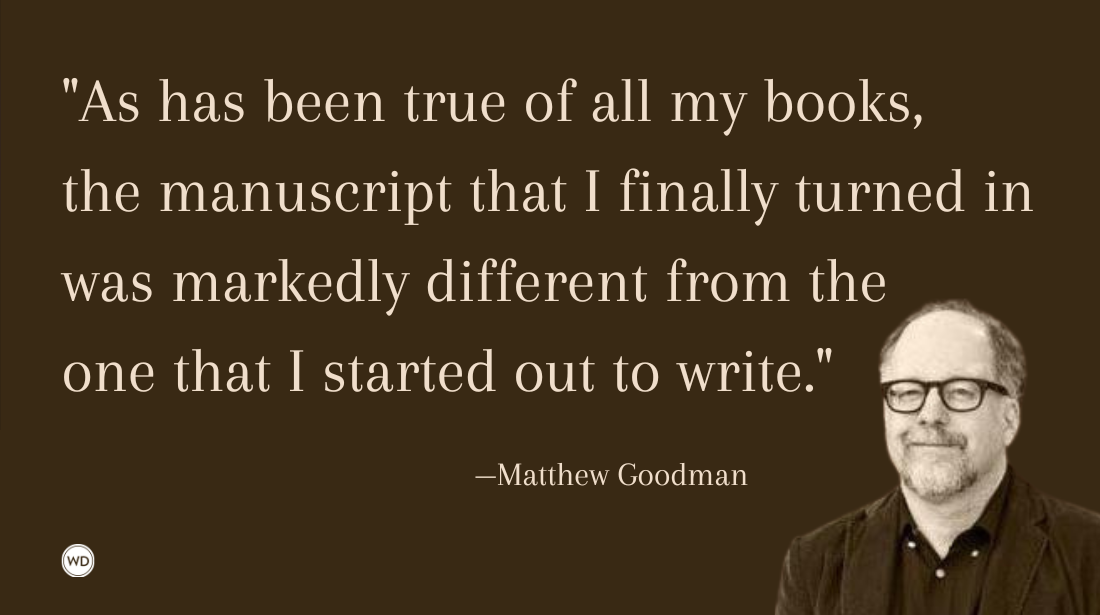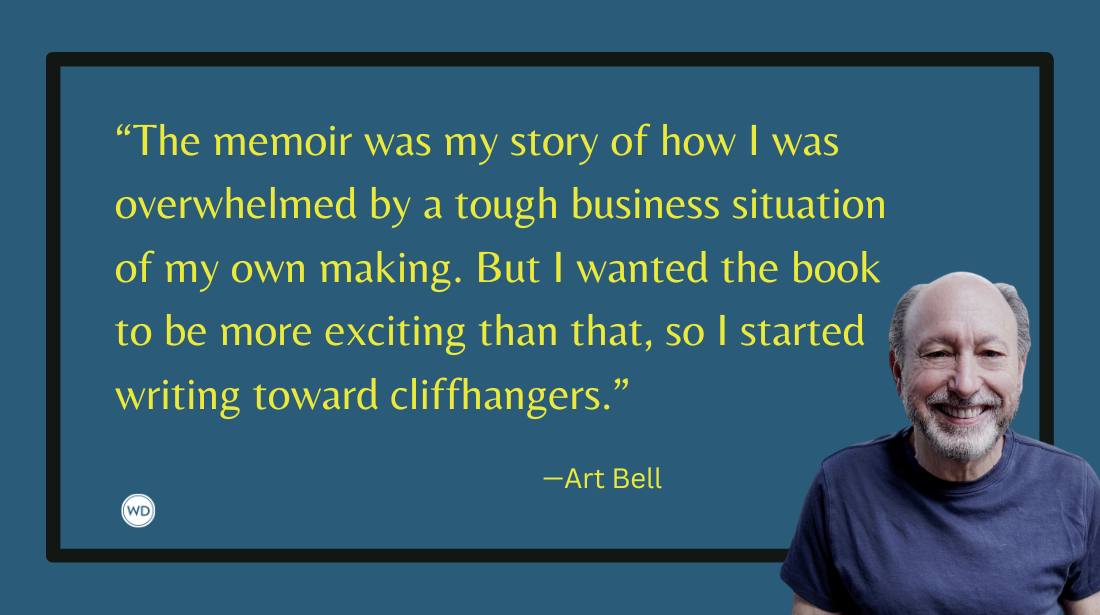How to Get Article Ideas: Steal Them
Shoplift articles from all around youincluding your own writing. Learn to purloin with the best of them, and keep your outbox and bank account full.
People often say to me, "Linda, you're so prolific that I bow down before you and kiss your feet. Where do you come up with so many wonderful ideas?" My blunt reply: "Why, I steal them!"
Now, I don't mean that I break into other writers' homes and rifle through their filing cabinets and hard drives. What I mean is that I find published ideas and think of ways to reslant them for my target magazines; after all, general ideas aren't copyrightable. Here's how you, too, can benefit from a life of harmless crime.
Nick from newspapers
Who would've thought that your local paper—a haven to such stories as "Dottie Smith Takes First in Church Flower Show"—would give you ideas that you can pitch to the nationals? These publications are a great source for the kind of small-town news that national magazine editors want to run but can't find on their own.
For example, many women's magazines run profiles of women who contribute to their communities by volunteering, creating nonprofit organizations and so on. These feel-good, low-key pieces are a staple for local papers.
Community business sections run articles on nearby companies doing fascinating things—maybe your town diner's hilarious new advertising plan will spur an article on marketing for a restaurant trade magazine.
Just be aware that not all small-town news stories are fit for big-name magazines. For example, those women who contribute to their communities have to be doing something really unusual—not just a holiday food drive. If Dottie Smith has prizewinning roses, that's not newsworthy; but let's say she's started a program to crossbreed state flowers—now you have something to run with.
Mooch from magazines
You wouldn't want to take an article idea in its entirety and pitch it to the magazine's competitor—that's just bad form. But no one says you can't slant an idea you found and sell it to a magazine in a different market.
For instance, I recently read a short in Rhode Island Monthly magazine about a gourmet hot dog stand in Providence. What a great idea for a food magazine: "Hot Dogs Go Highbrow." My husband, a master idea thief, saw a short piece about the International Wife Carrying Competition in Reader's Digest and sold an article on the event to Games magazine.
Here's how to do it: Go to the bookstore and make a beeline for parts of the newsstand you rarely browse—perhaps the pet or sports section. Gather up a big armload of magazines and head to the café. Buy a cappuccino and start flipping through the magazines, looking for ideas that you can retool for your target markets.
Try turning a profile into a roundup where you interview a bunch of people; or take a national idea and give it a local spin for a regional publication. Play the contrarian with an idea by pitching the exact opposite (for example, "How to Drop 10 Pounds Fast" can spawn "Why Diets Don't Work").
Pilfer from press releases
The press release's entire raison d'être is to persuade writers to write about the product or service advertised therein—so feel free to steal, swipe and snatch with abandon.
For example, a release recently sent my way dealing with new ways to manage waste on space shuttles turned into an article I sold to the tech magazine Wired News. A release about a computer model developed by NASA that can efficiently predict the weather turned into another article for the same magazine.
Find organizations that deal in the subjects you like to write about and get on their mailing lists. If you're into science, try EurekAlert! (www.eurekalert.com) for press releases on all sorts of scientific research. If you enjoy writing about pets, ask to be included on the press lists for The Society for the Prevention of Cruelty to Animals (www.spca.com) and other similar organizations. (A caveat: Press releases are by no means an objective source of information. Do your own research on the topic and be sure to consult a variety of experts.)
Grab from government reports
The government churns out an enormous quantity of written materials—reports, newsletters, advisories and more. These can be great sources of inspiration for writers. Here are examples of governmental info caches you can turn to when hunting for ideas:
• The U.S. Food and Drug Administration Web site (www.fda.gov) has a report about food safety after disasters such as hurricanes.
• The Federal Communications Commission (www.fcc.gov) has reports of actions against unsolicited junk faxers.
• The U.S. Census Bureau site (www.census.gov) gives facts and figures of all sorts, including how many Christmas cards are sent each year and the number of unmarried Americans.
Burgle from books
If you write about personal development, the self-help section of the bookstore is a potential gold mine. Write about parenting? Check out the childcare section. And for nutrition nuts, the shelves are overflowing with books about new diets.
Don't forget about online bookstores such as Amazon. Type in keywords such as "antiques," "marketing" or "yoga," and see what pops up. Have the Web site sort the results by date so the newest books show up on top.
Magazine editors love ideas that are made timely by the publication of a new book, and, as a bonus, you can interview the books' authors as expert sources. When I read Judith Orloff's most recent book, Positive Energy, I noticed a section about "intuitive empaths" who soak up other people's sentiments like a sponge. I crafted a query using Orloff as one of my sources and sent it to O: The Oprah Magazine. Next thing I knew, an editor replied and said she wanted to bring up the idea at their next editorial meeting.
Swipe from yourself
You know all those articles and queries you wrote that have languished on your hard drive for years? Pull a Dr. Frankenstein and bring them back to life. You put a lot of effort into researching those topics, so you should get as much mileage out of them as possible.
A few years ago, I wrote an article for a health magazine about how too much of a good thing (e.g., vitamins, sunblock, exercise) can be dangerous. On a recent foray through my "completed articles" file, I rediscovered the topic, revised my query with new examples and experts, and ended up selling a new version to a general interest magazine.
Every once in a while, scroll through your completed articles and queries, and determine if you can resell the ideas, using the same techniques you use when stealing ideas from magazines.
Now that you know how to pinch article topics, you'll never be short of ideas to query. The only thing left to learn is how to crack safes and jimmy locks (and then maybe you can write and sell an article about your newfound safecracking skills).
Learn how to develop article ideas magazine editors will find irresistible by considering:
Writer's Digest Handbook Of Magazine Article Writing
Become a WD VIP and Save 10% on this book:
Get a 1-year pass to WritersMarket.com, a 1-year subscription to Writer's Digest magazine and 10% off all WritersDigestShop.com orders! Click here to join.
Also check out these items from the Writer's Digest's collection:
Starting Your Career As A Freelance Writer
Freelance Basics - OnDemand Webinar
The Wealthy Writer
Writer's Digest The Craft & Business Of Writing
Writer's Digest Guide To Query Letters
Writer's Digest No More Rejections
Writer's Digest Weekly Planner
Writer's Digest Magazine One-Year Subscription
Writer's Digest Breaking Into Corporate Writing - On-Demand Webinar
Formichelli is the author of How to Do It All: The Revolutionary Plan to Create a Full, Meaningful Life — While Only Occasionally Wanting to Poke Your Eyes Out With a Sharpie, which is available now at Amazon.
Here’s where you can learn more, get a free sample of the book, join the early notification lost, and score an invite to this secret Facebook Group.








